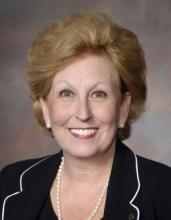For the first time, federal officials have publicly released data on how much Medicare pays individual physicians.
On April 9, the Centers for Medicare & Medicaid Services posted searchable files with information on more than 880,000 health care providers, including their specialty, the number of services they provided, what they charged, and what they were paid by Medicare.
Collectively, the data reveal $77 billion in Medicare Part B payments made in 2012.
The data set also allows the public to search for specific procedures and find out how often they were performed and the variation in payments.
For instance, in 2012, more than 91 million outpatient office visits were billed to Medicare with the CPT code 99213. The average Medicare-allowed amount was $69.59, with a range of $12.42 to $144.56. Chest x-rays were performed more than 17 million times in 2012; the average Medicare-allowed amount was $8.94, with a range of $6.52 to $28.56.
The Medicare-allowed amount for the more than 10 million emergency department visits billed to Medicare in 2012 ranged from $108.29 to $231.27, with an average allowed charge of $167.62.
In the short term, the large-scale data dump has yielded a slew of news stories about outlier physicians who raked in tens of millions from the Medicare program. Medicare officials said they expect that in the long term, the data will help root out fraud and highlight geographic payment variations.
"For too long, this information was not made public," Jonathan Blum, CMS principal deputy administrator, said during a press conference on April 9. "We believe the public has a right to know this information. The Medicare program is by and large funded with taxpayer dollars, and taxpayers have the right to understand what is being paid for and how it’s being paid for."
Aside from increased transparency, Mr. Blum said the agency is also counting on researchers, journalists, and the public to find patterns of waste or fraud that the agency may have missed.
But mostly, the data release has left physicians with unanswered questions – most notably how to address errors in the data. CMS officials did not provide physicians a chance to review their data before they were released, and so far, there is no formal mechanism for requesting corrections. The agency is working on setting up an appeals process, but it’s not ready yet, said Dr. Reid Blackwelder, president of the American Academy of Family Physicians. "It’s not an ideal situation at all."
For now, physicians can try e-mailing questions or complaints to CMS at MedicareProviderData@cms.hhs.gov.
Another lingering question is how to explain the information to patients.
"Payment data are particularly confusing since various complex factors contribute to their variability," said Dr. Norman E. Vinn, president of the American Osteopathic Association.
Physicians will be forced to explain to their patients that the CMS data are "raw" and don’t reflect the quality or competency of the physician or the treatment provided.
But Dr. Blackwelder said that if patients do bring up the data, it could be an opportunity to discuss why certain tests are frequently ordered or how Medicare actually pays physicians. For instance, Dr. Blackwelder said the Medicare charges reflect the cost of services, while the payments from the CMS are usually much lower.
"It’s a really important issue for patients to be aware of," he said.
While nearly all physician organizations voice their support of greater transparency on health care payments, they also object to the lack of context provided by the CMS.
The American Medical Association released a guide to the media highlighting the potential for errors in the data, as well as the lack of information about quality. The raw data could also be misleading in other ways, the AMA noted. For instance, since residents, physician assistants, and nurse practitioners sometimes file claims under a physician’s NPI (National Provider Identifier) number, the data listed for a particular physician may not accurately portray the services performed by that physician. Also, the data do not account for the patient mix, the demographics of the practice, or drug and supply costs.
"The AMA is disappointed that CMS did not include reasonable safeguards that would help the public understand the limitations of this data," Dr. Ardis Dee Hoven, AMA president, said in a statement.
The Medical Group Management Association raised similar concerns. "This release could result in patients making decisions about their care based on faulty assumptions about physicians," Dr. Susan Turney, president and CEO of MGMA, said in a statement. "Claims data are not a proxy for quality, especially when provided in isolation from a single payer."



